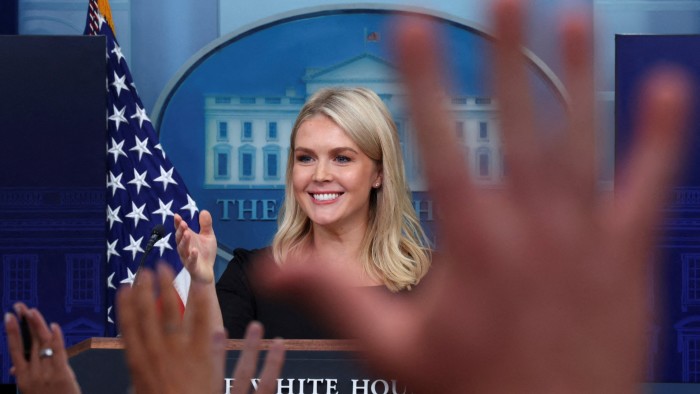Unlock the White House Watch newsletter for free
Your guide to what Trump’s second term means for Washington, business and the world
Britain, France and Germany will hold talks with Iran on Friday in a push to prevent escalation of its conflict with Israel, after Donald Trump said he would decide “within the next two weeks” whether the US would enter the war.
The meeting in Geneva will be the first high-level face-to-face diplomacy with Tehran since Israel launched its attacks on Iran a week ago.
It follows a statement from Trump on Thursday that there could be new talks with Iran in the “near future”.
Trump’s statement appeared to signal that he was slowing down his decision about entering the war, even as American military assets are being sent to the region amid fears of an imminent escalation.
“Based on the fact that there’s a substantial chance of negotiations that may or may not take place with Iran in the near future, I will make my decision whether or not to go within the next two weeks,” the president said in a statement read by White House press secretary Karoline Leavitt on Thursday.
Leavitt also said that the US had kept open its negotiations with Tehran during days of missile exchanges between Iran and Israel. “Correspondence has continued,” Leavitt said in response to a question about whether Trump’s envoy Steve Witkoff had been in contact with Iranian officials.
Brent crude futures, the international oil benchmark, slipped 2.4 per cent in Asian trading on Friday to $76.96 a barrel. West Texas Intermediate, the US benchmark, fell 2.5 per cent to $73.72 a barrel. Haven assets declined, with prices for gold dropping 0.6 per cent to $3,350 a troy ounce and the US dollar weakening 0.3 per cent against a basket of its key trading partners.
The comments from the US came after seven days of conflict, which began when Israel launched an attack on Iran in what it said was an effort to destroy the Islamic republic’s nuclear programme.
The US has assisted Israel in shooting down Iranian missiles fired at its ally with speculation mounting that Trump was preparing to authorise bombing raids to hit Iran’s Fordow nuclear facility.
David Petraeus, the retired general who led the CIA and US Central Command, said the decision to wait two weeks was a “pretty good call”. It would give more time for a second US aircraft carrier, the USS Nimitz, to move from the Indo-Pacific region to the Middle East, he said.
“There are other actions they may want to take, such as to move more air and ballistic missile defence [systems] into position, ensure all the munitions are in place and also do some rehearsals,” Petraeus told the Financial Times. “It’s also reasonable to give diplomacy a last chance.”
The gathering in Geneva with Iran’s Abbas Araghchi is a revival of the “E3” format, under which Britain, France and Germany — the European signatories to a 2015 nuclear accord Tehran signed with world powers — have sought to resolve the country’s stand-off with the west.
The aim of the meeting would be to agree a framework to restart monitoring Iran’s nuclear programme, but with international monitors granted unfettered access to facilities. Another point of discussion will be whether Iran would be willing to make a commitment to cut its ballistic missile stockpile.
A crisis over Iran’s nuclear programme erupted after Trump unilaterally withdrew from the accord in 2018. Tehran responded by expanding its activity and has been enriching uranium to levels close to weapons grade, although it says its nuclear programme is purely for civilian purposes.
The Trump administration held five rounds of indirect talks with Iran before the diplomatic process was upended by Israel launching its strikes on Friday — days before a sixth round of negotiations was scheduled.
Israeli Prime Minister Benjamin Netanyahu, who opposes the diplomatic efforts, said he launched the war to prevent Tehran developing nuclear weapons.
French foreign minister Jean-Noël Barrot told journalists on Thursday: “Negotiation remains today the only way to achieve a lasting rollback of Iran’s nuclear and ballistic missile programme.”
The E3, which was heavily involved in efforts with the Biden administration to revive the 2015 accord, has been largely marginalised by Trump as he has sought to pressure Iran into a new deal.
UK foreign secretary David Lammy is expected to deliver a message to Iran from the US that a path to a diplomatic solution is still possible.
“It’s better dealt with by way of negotiations than by way of conflict . . . The risk of escalation across the region is obvious,” UK Prime Minister Sir Keir Starmer said on Thursday.
Reporting by Aime Williams in Washington, George Parker and David Sheppard in London, Leila Abboud in Paris and Najmeh Bozorgmehr in Tehran



